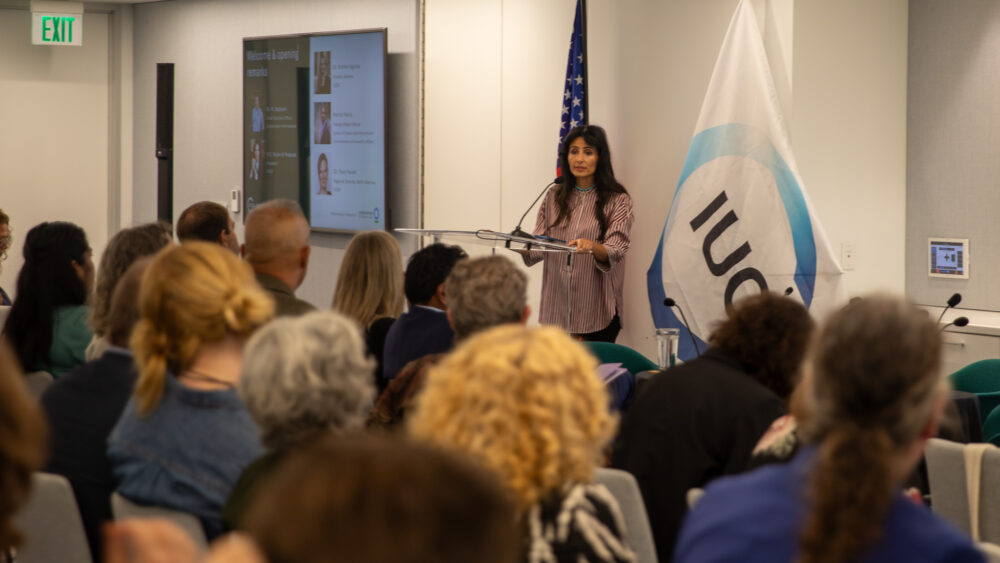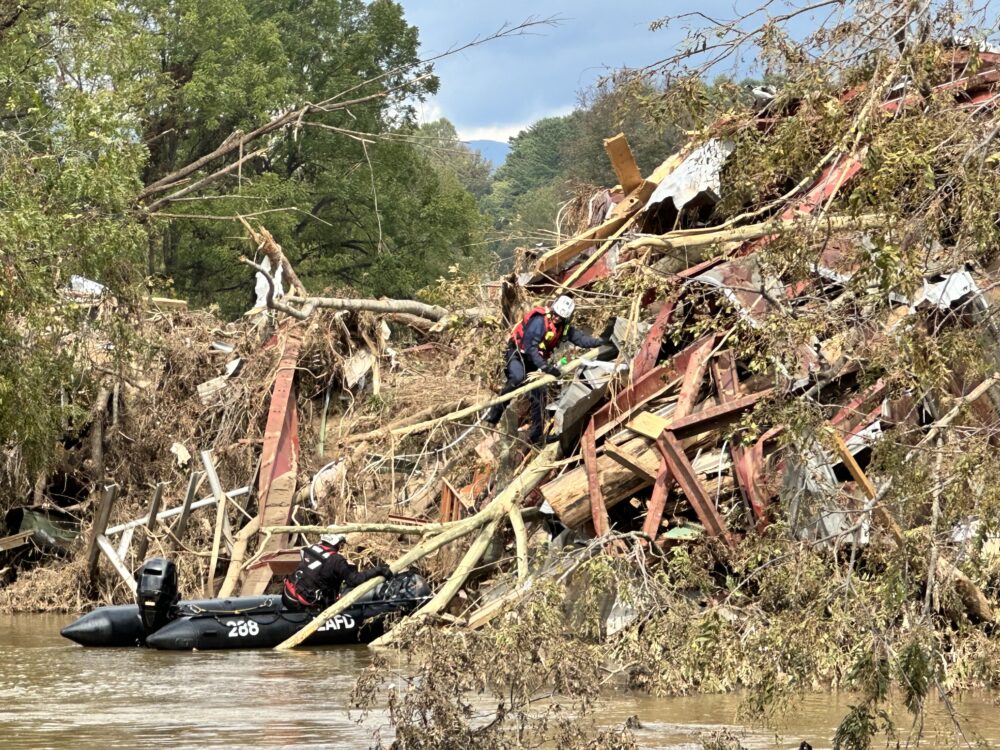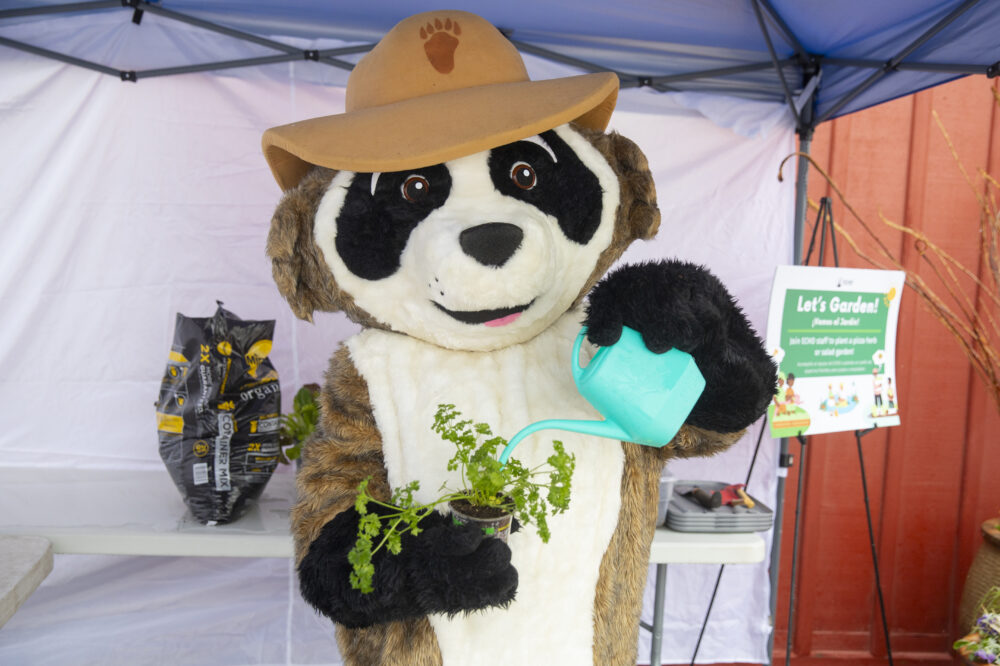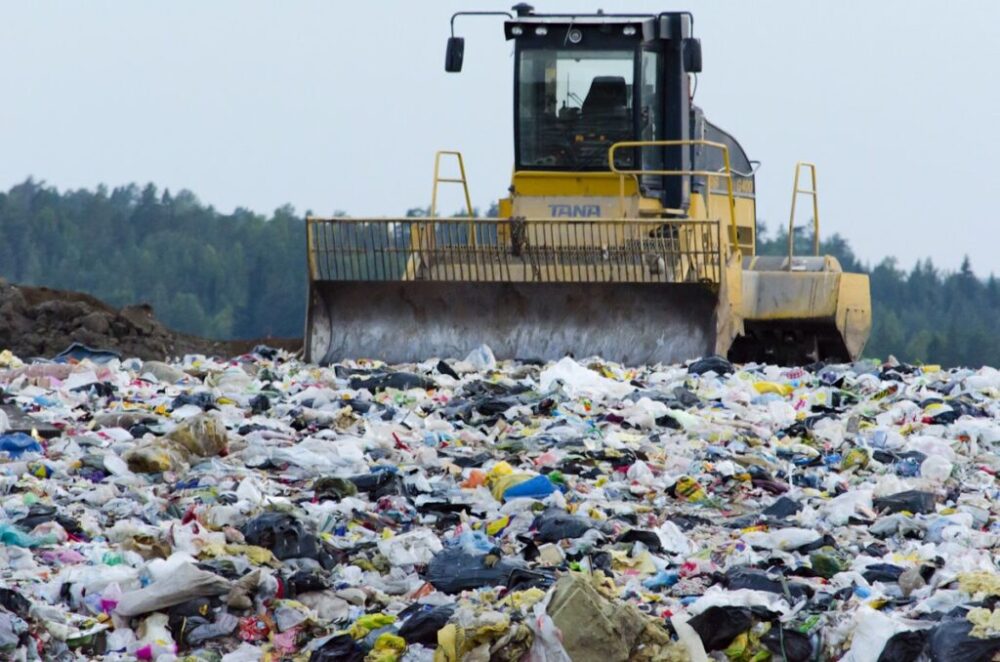We have much more to do and your continued support is needed now more than ever.
Portland-Montreal Pipeline Trek Day 4 – Visiting Area Businesses
Guest Post by Brett Chamberlin
Rivers and forests aren’t the only places intersected by the Portland-Montreal Pipeline. The aging crude oil pipeline also passes under dozens of business properties. Hundreds more are situated downstream along waterways at risk of contamination due to a spill. These are the stories of three businesses – in Maine, New Hampshire, and Vermont – intersected by the #PMPL.
Barton, Vermont – “We could see the pipe.”
About halfway across the state of Vermont, the Portland-Montreal passes a small flooring company’s headquarters. At the foot of the hill on which the business sits, the pipeline passes beneath Roaring Brook.
This past spring, a manager at that company noticed that the brook had washed away soil and rock to expose the pipeline. He called the Portland Pipeline Company, which soon responded – they diverted the brook and used heavy equipment to rebury the line.
Pipelines exposed in running water represent a dual risk. They are at increased risk for spills, as materials carried in the flow can collide with the pipeline. They also represent a more serious contamination risk, threatening everything downstream of the break.
Standing on the bank of Roaring Brook, on the spot where the pipeline had washed up just months earlier, it became much clearer just how a pipeline break could happen.
Jefferson, New Hampshire – “We just want to know.”
Santa’s Village in Jefferson, New Hampshire is a third-generation family-owned business. This Christmas-themed amusement park is a big regional attraction that employs 300 seasonal workers in a town short on work.
Santa’s Village is also home to 27 reindeer. The animals live in a large enclosure behind the park. The pipeline passes within 100 feet of their home.
Nick, one the owners of Santa’s Village, told us those reindeer are like family. “If you’re a reindeer,” he told us, “you want to live here.” The reindeer are even small-screen stars; they were featured in a commercial for Rosetta Stone, speaking Spanish with Santa.
Nick, who has been working at Santa’s Village for 17 years, is aware of the pipeline but doesn’t give it much thought. He’s been happy with all his interactions with the Portland Pipeline Company, and he trusts that if something bad were to happen, “they know how to handle it.”
When we told him about the proposal to reverse the pipeline’s flow to carry tar sands crude, it was the first he’d heard of the idea. He asked us some questions about the idea, and raised some valid concerns – like, “there must be a new pipeline that’s more durable than what’s in the ground.”
Still, Nick trusts the company, which many in the area consider a good neighbor. He’s willing to hear their plans (which are currently on hold) – but that means he also wants to hear the risks. “I hope they’d bring us all together, tell us what they want to do, tell us the risks, tell us how’d they respond if something went wrong.”Business owners like Nick share the risk of the pipeline. They deserve to share the decision.
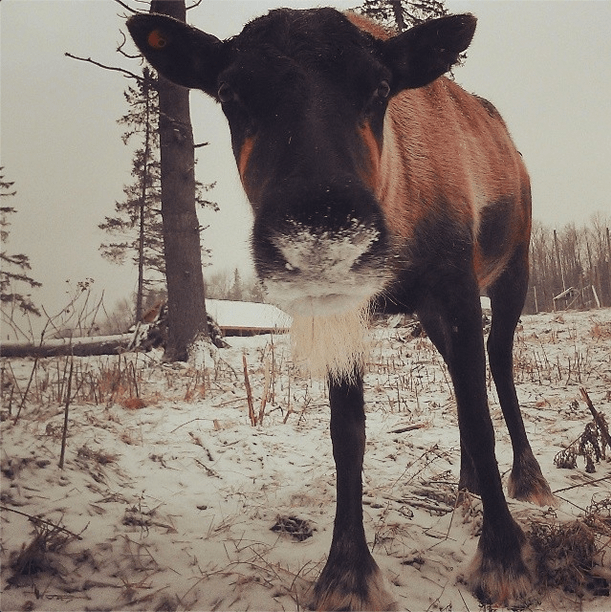
Seabury Lyons understands risk. Before retiring to Maine, he worked as a safety engineer at a manufacturing plant. He worked to identify, minimize, and prevent risks. Seabury understands that even with the most stringent precautions, accidents happen. “It’s amazing the way factors can come together to make something really freakish happen,” he told us.
After moving to Bethel, Seabury became a partner in his friend’s business. Together, the two own Bethel Outdoor Adventure and Maine Mineralogy Expeditions. They offer camping, kayaking, biking and, during the winter, skiing and snowshoeing. The Portland-Montreal Pipeline passes below the Androscoggin River a few miles from their business downtown.
“If that pipeline spills, I am instantaneously out of business,” Seabury told us. “People are not going to come if the Androscoggin is full of bitumen” [tar sands]. “This is not a statistically insignificant chance.”
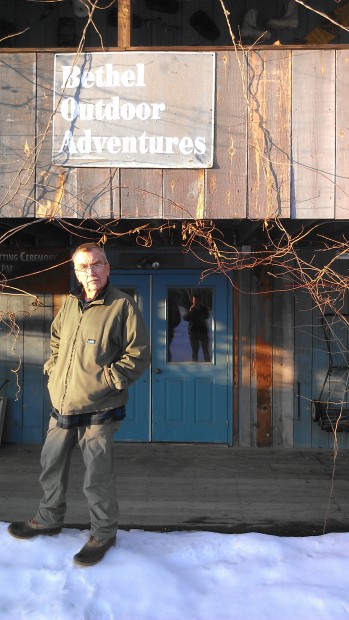
Speak up for Northeast Wildlife
![]() Help protect moose from dirty fuels. Tell the State Department to stop the Northeast tar sands pipeline.
Help protect moose from dirty fuels. Tell the State Department to stop the Northeast tar sands pipeline.
About the authors
NWF Campus Ecology Fellow Kaity Thomson and her companion Brett Chamberlin are blogging their weeklong trek along the route of the Portland-Montreal Pipeline (by foot, cross country skis, and snow shoes!) to meet with community members and experience the habitats at risk of a spill. Kaity and Brett will also be live-tweeting their adventure—follow them on twitter at @99brett and @kaityt18, and join in on the conversation by using the hashtags: #PMPL or #PipeHike
 Brett Chamberlin is a recent graduate of New York University, where he studied politics and journalism. A NH native, Brett has organized a variety of viral projects around economic and environmental justice issues. His writing and activism have been appeared on NHPR, The Nation, BuzzFeed, The Village Voice, and more. Brett is now working as a founder of the Post-Landfill Action Network, a nonprofit helping students end waste on campus. He’s also an avid twitter user at @99Brett
Brett Chamberlin is a recent graduate of New York University, where he studied politics and journalism. A NH native, Brett has organized a variety of viral projects around economic and environmental justice issues. His writing and activism have been appeared on NHPR, The Nation, BuzzFeed, The Village Voice, and more. Brett is now working as a founder of the Post-Landfill Action Network, a nonprofit helping students end waste on campus. He’s also an avid twitter user at @99Brett
 Kaity Thomson is pursuing a BSc in Environmental Science at the University of New Hampshire. Initially leaving home to study dance in New York City, Kaity quickly came to realize the importance of the natural landscape she left behind. Transferring home to NH, she was driven to understand the environment and learn how to effectively communicate its importance. Currently, Kaity is researching potential impacts of a tar sands pipeline in New England. Her research and outreach is supported by the National Science Foundation and National Wildlife Federation Campus Ecology Fellowship.
Kaity Thomson is pursuing a BSc in Environmental Science at the University of New Hampshire. Initially leaving home to study dance in New York City, Kaity quickly came to realize the importance of the natural landscape she left behind. Transferring home to NH, she was driven to understand the environment and learn how to effectively communicate its importance. Currently, Kaity is researching potential impacts of a tar sands pipeline in New England. Her research and outreach is supported by the National Science Foundation and National Wildlife Federation Campus Ecology Fellowship.


